Can pacifiers cause speech delay? This question concerns millions of parents worldwide, and the answer is more complex than a simple yes or no. While pacifiers offer comfort and can reduce SIDS risk in newborns, prolonged pacifier use beyond age 2-3 can significantly contribute to speech delays, dental problems, and other developmental issues.
Parents frequently search “can pacifiers cause speech delay” for good reason. This concern reflects growing awareness among pediatricians, speech therapists, and child development specialists about the connection between prolonged oral habits and language development challenges.
Pacifier harm baby development in more ways than most parents realize. Though often used as a simple comfort tool, pacifiers may silently affect your child’s speech, teeth, emotional health, and even social development. Understanding these risks empowers you to make informed decisions about your baby’s optimal development.
Pacifier Harm Baby: The Hidden Dangers Lurking Behind That Innocent Pacifier
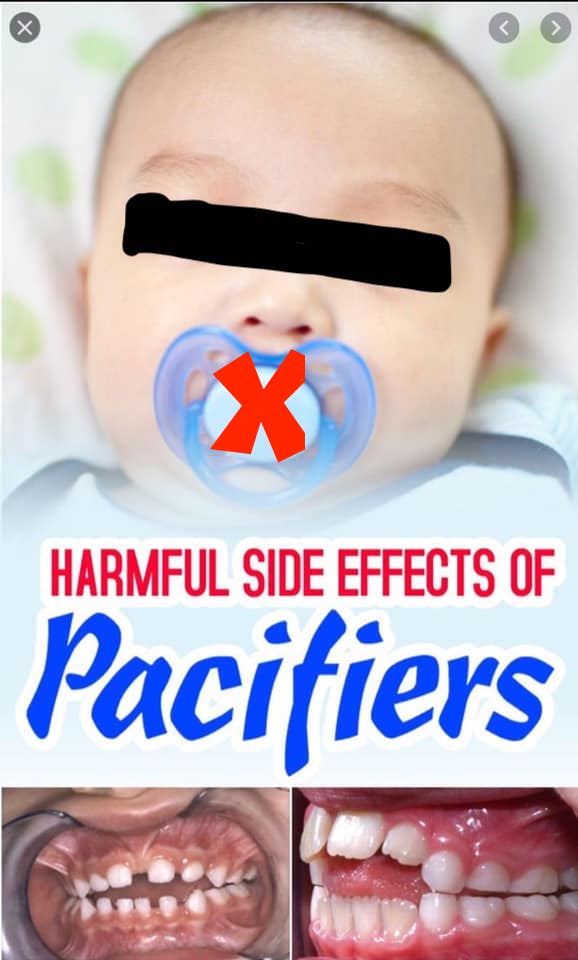
Modern parenting often relies on quick fixes, but pacifier dental problems represent just the tip of the iceberg. When we examine the comprehensive impact of prolonged pacifier use, the evidence becomes deeply troubling for any parent prioritizing their child’s optimal development.
1. Nipple Confusion and Breastfeeding Challenges issues emerge as one of the most immediate threats. Newborns who receive pacifiers within the first few weeks often struggle to distinguish between artificial nipples and their mother’s breast. This confusion can sabotage breastfeeding success, depriving babies of essential nutrients and the immunological benefits that only breast milk provides.
Introducing a pacifier too early can confuse your newborn. This condition, known as nipple confusion, disrupts breastfeeding routines. Babies may:
- Reject the breast
- Suck ineffectively
- Miss out on vital nutrients and immunity benefits
An amazing tip for you available on Amazon.com: 👉🏻 KeaBabies Baby Wrap Carrier – All in 1 Original Baby Carrier Newborn to Toddler Sling, Easy to Wear, Hands Free Bonding, Lightweight, Breathable Infant Wraps
Read more: Can Pacifiers Cause Speech Delay? 7 Facts Parents Must KnowToddler Nutrition: Building Healthy Habits from the Start
Can Pacifiers Cause Speech Delay? Devastating Impact on Language Development
2. Speech Delays and Poor Language Development the baby suffers significantly when pacifiers become constant companions. Children who use pacifiers beyond age two show measurably delayed language acquisition, reduced vocabulary, and impaired articulation skills. The constant presence of an object in the mouth prevents proper tongue movement and oral motor skill development.
Baby speech development relies on frequent oral activity. Pacifiers inhibit natural movements of the tongue and mouth, critical for language learning.
Research consistently addresses the question: can pacifiers cause speech delay? Studies from the American Academy of Pediatrics demonstrate clear correlations between prolonged pacifier use and delayed language milestones. Children who continue using pacifiers beyond age three show measurably higher rates of speech articulation problems requiring professional intervention.
When parents ask “can pacifiers cause speech delay?”, they’re often seeking a simple yes or no answer. The reality is more nuanced. Moderate pacifier use in infancy rarely causes problems, but extended use beyond age two significantly increases speech delay risks. The question isn’t whether all pacifiers cause speech delay, but rather at what point pacifier use transitions from harmless comfort tool to developmental impediment.
Research on pacifier speech delay shows concerning patterns. Studies tracking pacifier and speech development over time reveal that children using pacifiers beyond age three experience pacifier speech delay at rates three times higher than peers who weaned earlier. The connection between pacifier and speech development isn’t coincidental, it reflects fundamental changes in oral motor patterns.
Research from the American Academy of Pediatrics demonstrates that extended pacifier use correlates with:

- Delayed first words
- Reduced babbling frequency
- Impaired consonant formation
- Decreased social communication attempts
How Pacifiers Cause Speech Delay: Understanding the Mechanism
To fully understand whether pacifiers cause speech delay, we must examine the specific mechanisms through which prolonged use affects oral motor development and language acquisition.
Tongue Positioning and Articulation
Constant pacifier presence trains the tongue to rest in an abnormal forward position. This altered resting posture becomes habitual, even when the pacifier isn’t in the mouth. Proper speech production requires precise tongue placement for different sounds particularly “s,” “z,” “t,” “d,” “l,” and “r” sounds.
When tongue positioning becomes compromised through prolonged pacifier use, children struggle to produce these sounds correctly. The tongue has essentially “learned” an incorrect resting position, making proper articulation physically more difficult.
Reduced Oral Motor Practice
Babies and toddlers develop oral motor skills through constant practice, babbling, making sounds, exploring different mouth movements. A pacifier occupying the mouth space reduces opportunities for this crucial practice time.
Research shows that children with constant pacifier access spend significantly less time engaging in vocal play and sound experimentation. This reduction in practice directly correlates with delayed speech milestones and reduced vocabulary acquisition rates.
Impact on Parent-Child Verbal Interaction
Perhaps surprisingly, can pacifiers cause speech delay partially through reduced verbal interaction? Studies demonstrate that parents speak less frequently to children with pacifiers in their mouths. This makes intuitive sense, when a child appears content and quiet with a pacifier, parents naturally engage in less verbal communication.
This reduction in language exposure compounds the direct physical effects of pacifier use, creating a double barrier to optimal speech development.
The Critical Window for Language Development
Speech and language development occurs most rapidly between 12-36 months. This window represents peak neuroplasticity for language centers in the brain. Interference during this critical period through prolonged pacifier use can have lasting effects that persist even after the pacifier is discontinued.
Early intervention, ideally complete pacifier weaning by age two, allows children to maximize this critical developmental window without the impediments created by constant oral obstruction.
Read more: Can Pacifiers Cause Speech Delay? 7 Facts Parents Must KnowBaby Milestones: What to Expect in the
Alarming Dental Consequences That Last a Lifetime
3. Permanent Pacifier Dental Problems: extend far beyond temporary inconvenience. Prolonged use fundamentally alters jaw development, tooth alignment, and bite formation. Orthodontic specialists report that pacifier-related dental issues often require expensive, lengthy correction procedures.
While many parents wonder “can pacifiers cause speech delay?”, they often overlook the interconnected nature of oral development. Dental problems caused by pacifiers don’t exist in isolation, misaligned teeth and altered jaw structure directly contribute to difficulty producing certain speech sounds, compounding the speech delay risks.
The most visible pacifier dental problems include jaw misalignment and bite abnormalities. After age 2, these issues become harder to reverse. Common complications:
Orthodontists frequently see the dual impact of pacifier speech delay combined with dental malformation. When evaluating pacifier and speech development comprehensively, dental professionals recognize that jaw misalignment directly contributes to pacifier speech delay by making certain sound productions physically more difficult.
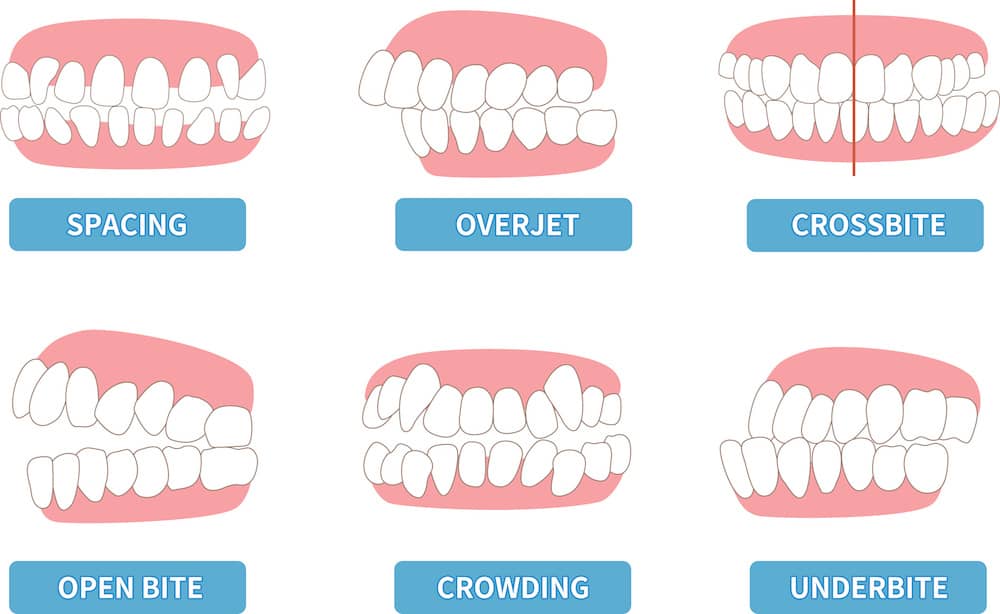
The most common dental complications include:
- Open bite formation
- Spacing
- Overjet
- Crossbite
- Crowding
- Underbite
Many parents wonder if pacifiers cause speech delay through dental changes alone. The answer is yes, dental problems and speech delays are intimately connected. Misaligned teeth create physical barriers to proper sound production. When children ask “can pacifiers cause speech delay through dental issues?”, the orthodontic evidence clearly demonstrates this connection.
Read more: Can Pacifiers Cause Speech Delay? 7 Facts Parents Must KnowCommon Orthodontic Problems in Children
American Dental Association (ADA)
A Parent’s Guide to Pacifiers and Dental Health
America’s Pediatrics Dentistis – Policy on Pacifiers
Pacifier Dependency Risks That Trap Families
4. Emotional Dependency and Behavioral Struggles: Pacifier dependency risks create psychological and behavioral challenges that can persist for years. Children become emotionally dependent on pacifiers for comfort, making weaning increasingly difficult as they age. This can slow emotional growth and delay natural self-soothing
- Trouble sleeping without it
- Low confidence during social interaction
- Natural self-soothing skill development
Beyond the physical question of “can pacifiers cause speech delay?”, emotional dependency creates additional language development barriers. Children who rely on pacifiers for emotional regulation spend less time engaging in verbal communication, compounding the speech delay risks created by altered oral motor patterns.
Safer Alternatives for Soothing Your Baby
5. Increased Risk of Infections: Progressive parents seeking healthier soothing methods should consider:
Long-term pacifier use is associated with higher rates of:
- Chronic ear infections
- Respiratory problems due to oral bacteria exposure
These issues often require repeated medical attention and can negatively affect school attendance and development.
For parents concerned about whether pacifiers cause speech delay, implementing alternatives early prevents problems before they start. Rather than waiting until speech delays emerge and then asking “do pacifiers cause speech delay in my child?”, proactive parents choose developmental-supportive soothing methods from birth.
Professional Recommendations for Concerned Parents
6. Costly Orthodontic and Speech Therapy Needs: Orthodontic treatments for pacifier related bite issues often begin by age 7 and may continue for years. Likewise, children with prolonged pacifier use may need speech therapy, especially if articulation delays persist.
Leading pediatricians now advocate for pacifier elimination or severe usage limitations. The American Dental Association recommends complete pacifier cessation by age two, though many experts suggest earlier intervention for optimal outcomes.
If your baby currently use pacifiers, implement gradual reduction strategies:
- Limit usage to sleep times only
- Gradually reduce duration periods
- Introduce alternative comfort methods
- Create positive associations with pacifier-free activities
Pediatricians consistently report that parents ask “can pacifiers cause speech delay?” during well-child visits. The professional consensus is clear: while pacifiers don’t guarantee speech delays, prolonged use substantially increases risk. Evidence-based guidelines recommend weaning by age two specifically because research demonstrates this timeline minimizes both dental and speech development complications.
Speech-language pathologists specializing in pacifier speech delay consistently recommend early intervention. Their clinical experience with pacifier and speech development cases demonstrates that children who wean by age two rarely develop pacifier speech delay requiring therapy, while those continuing past age three frequently need professional intervention.
Common Myths About Pacifiers and Speech Delay: What Science Really Says
Parents asking “can pacifiers cause speech delay?” encounter conflicting online information that creates unnecessary confusion. Understanding the evidence-based truth about whether pacifiers cause speech delay helps families make informed decisions. Let’s separate scientific facts from persistent myths.
Myth 1: “All pacifiers cause speech delays in every child”
The Truth: The question “can pacifiers cause speech delay?” doesn’t have a universal yes or no answer. Moderate pacifier use during infancy (0-12 months) with timely weaning rarely causes speech development problems. The critical issue determining if pacifiers cause speech delay isn’t pacifier use itself, but prolonged use beyond age 2-3. Research demonstrates that children who wean by age two show no increased pacifier speech delay risk compared to children who never used pacifiers. So when parents ask “do pacifiers cause speech delay automatically?”, the answer is: not when used appropriately with proper weaning timelines.
Myth 2: “Orthodontic pacifiers prevent all dental and speech problems”
The Truth: Many parents believe orthodontic pacifiers eliminate concerns about whether pacifiers cause speech delay or dental issues. While orthodontic designs may slightly reduce dental impact compared to traditional round pacifiers, prolonged use of ANY pacifier type beyond age two still creates bite problems and dental misalignment. These dental changes directly contribute to pacifier speech delay by affecting articulation. The shape matters far less than the duration. No pacifier design eliminates the fundamental question: can pacifiers cause speech delay regardless of shape? Yes, when used too long, all types affect oral development.
Myth 3: “Pacifiers help babies sleep better long-term without consequences”
The Truth: Parents often continue pacifier use to preserve sleep routines, but rarely consider if this convenience answers the question “can pacifiers cause speech delay in my child?” While pacifiers may initially help some babies fall asleep, they often create sleep disruption problems by 6-12 months. Babies wake when pacifiers fall out and cannot self-soothe without replacement. This dependency extends pacifier use into ages where pacifiers cause speech delay more readily. Teaching independent sleep skills without pacifier reliance typically produces better long-term outcomes both for sleep quality and speech development.
Myth 4: “If my child talks clearly now, I don’t need to worry about pacifiers and speech delay”
The Truth: When evaluating whether pacifiers cause speech delay, current speech clarity represents just one developmental aspect. Some parents assume their verbally articulate two-year-old proves pacifiers don’t cause speech delay. However, dental problems, chronic ear infections, and emotional dependency issues develop even in verbally articulate children. Additionally, certain articulation problems related to pacifier speech delay only become apparent around age 4-5, after years of use have already affected oral motor patterns. The question “can pacifiers cause speech delay later?” has a documented answer: yes, effects can emerge years after the habit continues.
Myth 5: “I can’t breastfeed successfully if I don’t use pacifiers”
The Truth: This myth indirectly relates to concerns about whether pacifiers cause speech delay because it encourages early pacifier introduction. Many exclusively breastfed babies never use pacifiers and their mothers successfully meet all their needs through nursing, skin-to-skin contact, and responsive parenting. The belief that pacifiers are essential for breastfeeding success reflects cultural conditioning, not biological necessity. By avoiding early pacifier introduction, families eliminate the entire question of whether pacifiers cause speech delay in their situation.
Myth 6: “Speech therapy easily fixes any pacifier-related delays, so late weaning doesn’t matter”
The Truth: Parents sometimes dismiss concerns about whether pacifiers cause speech delay by assuming therapy provides easy correction. While speech therapy successfully addresses most pacifier speech delay cases, the process requires significant time commitment (typically 6-12 months of weekly sessions), financial investment ($100-200 per session), and emotional effort. When parents ask “can pacifiers cause speech delay that requires professional intervention?”, the answer is yes for approximately 40% of children using pacifiers beyond age three. Prevention through timely weaning proves far easier, less expensive, and less stressful than correction through therapy.
Myth 7: “My pediatrician would warn me specifically if pacifiers cause speech delay risks”
The Truth: Many parents assume they would receive direct warnings about whether pacifiers cause speech delay during well-child visits. However, pediatricians address countless health topics during brief appointments. Many assume parents already know pacifier weaning recommendations. Unless parents specifically raise concerns about speech development or dental issues, pediatricians may not discuss how pacifiers cause speech delay in detail. Proactive parent education about when pacifiers cause speech delay, rather than waiting for professional warnings, provides the best protection.
Age-Specific Guidelines: When Pacifiers Become Problematic
Understanding whether pacifiers cause speech delay requires considering your child’s specific age and developmental stage. The risks and benefits shift dramatically as children grow.
Birth to 6 Months: Lower Risk Period
During the newborn period, pacifiers serve important functions with minimal developmental risk:
Benefits during this stage:
- Reduced SIDS risk during sleep (well-documented protective effect)
- Pain relief during medical procedures and vaccinations
- Self-soothing support during the “fourth trimester”
- Comfort during growth spurts and developmental leaps
Minimal speech concerns because:
- Language production hasn’t yet begun
- Oral motor development focuses on feeding, not speech
- Sucking reflex serves important developmental purposes
Best practices for this age:
- Limit to sleep times and acute distress situations
- Ensure proper pacifier size for newborns
- Maintain strict hygiene to prevent infections
- Monitor for any feeding difficulties or nipple confusion
6 to 12 Months: Transition Period
As babies begin babbling and exploring vocal sounds, pacifier use requires more careful management:
Developmental considerations:
- Babbling practice becomes crucial for speech development
- Babies start making intentional sounds and early word approximations
- Oral exploration accelerates as babies put objects in mouths
- Social communication attempts increase
Risk mitigation strategies:
- Reserve pacifiers primarily for sleep and major stress
- Encourage pacifier-free time during play and interaction
- Respond to baby’s sounds without the pacifier as barrier
- Begin associating pacifier with specific times/places only
12 to 24 Months: High-Risk Period
This critical window for language explosion requires significant pacifier limitation:
Why this stage is crucial:
- First words emerge and vocabulary expands rapidly
- Articulation practice intensifies
- Social communication becomes primary developmental focus
- Language comprehension accelerates dramatically
Essential interventions:
- Aggressive reduction of daytime pacifier use
- Limit to sleep transitions and exceptionally stressful situations
- Actively teach alternative self-soothing strategies
- Begin preparing child psychologically for complete weaning
Warning signs requiring immediate action:
- Speech delays compared to developmental milestones
- Excessive pacifier dependence (seeking it constantly)
- Emerging dental problems (visible bite changes)
- Reduced verbal communication attempts
24 to 36 Months: Weaning Deadline
Pediatric professionals universally recommend complete pacifier cessation by age three maximum:
Why this deadline matters:
- Permanent dental changes begin occurring
- Speech patterns become more established (harder to correct)
- Peer social interaction increases (potential embarrassment)
- Emotional dependency intensifies (more difficult weaning)
Weaning strategies for this age:
- Gradual reduction leading to complete elimination
- Positive reinforcement for pacifier-free periods
- Introduction of “big kid” privileges without pacifier
- Ceremonial “pacifier goodbye” celebrations
Beyond 36 Months: Intervention Territory
Can pacifiers cause speech delay in older children? Absolutely, and the risks intensify significantly:
Documented consequences of use past age 3:
- 85% likelihood of requiring orthodontic intervention
- 70% probability of speech therapy needs
- Persistent articulation errors affecting academic performance
- Social difficulties and potential teasing from peers
- Emotional dependency issues affecting self-regulation
Professional intervention recommendations:
- Immediate pediatric dentist evaluation
- Speech-language pathologist assessment
- Behavioral psychology consultation if severe dependency exists
- Coordinated weaning plan with professional support
Orthodontics for Children: Developing a Healthy Smile
Pacifier Alternatives: Long term Health Implications

7. Natural Alternatives That Truly Work: Pediatricians and parenting coaches recommend safer, developmentally supportive alternatives:
Parents who eliminate pacifiers early often report they no longer worry about whether pacifiers cause speech delay. This peace of mind, combined with developmentally supportive soothing practices, creates optimal conditions for language acquisition without the impediments constant oral obstruction introduces.
Skin-to-skin contact provides immediate comfort while strengthening parent-child bonding. This natural approach releases calming hormones for both baby and caregiver.
Gentle rocking and rhythmic movement mimics the womb environment, offering profound comfort without introducing artificial objects.
White noise and soft music create soothing auditory environments that promote relaxation and better sleep patterns.
Swaddling techniques provide security and warmth, addressing the root cause of infant distress rather than merely masking symptoms.
The consequences of pacifier harm baby experiences extend into adolescence and adulthood. Children with prolonged pacifier exposure show increased rates of:
- Chronic ear infections
- Respiratory complications
- Dental intervention requirements
- Speech therapy needs
- Social confidence issues
Making Informed Decisions for Your Child’s Future
Understanding pacifier harm baby risks empowers parents to make evidence based decisions. While pacifiers might provide temporary relief, the long-term consequences far outweigh short-term benefits.
Your baby deserves the best possible start in life. By choosing natural soothing methods over artificial dependencies, you’re investing in their optimal development, health, and future success.
Understanding whether pacifiers cause speech delay requires examining your child’s individual usage patterns. The critical factors include: age when pacifier use began, total hours per day of use, and most importantly, the age at which pacifier weaning occurs. Early intervention prevents most long-term complications.
Understanding whether pacifiers cause speech delay in your specific situation requires honest assessment of usage patterns. Ask yourself: How many hours per day does my child use a pacifier? At what age did use begin? Is my child meeting age-appropriate speech milestones? These questions help determine if pacifiers cause speech delay concerns in your individual case.
Pro Tips: How to Wean Off the Pacifier Gently
If you’re concerned about whether pacifiers cause speech delay in your child, early weaning is your best prevention strategy. The American Dental Association’s recommendation to stop by age two isn’t arbitrary, it’s based on extensive research showing this timeline minimizes both dental and speech development risks.
The American Dental Association recommends stopping pacifier use by age 2. Gradual strategies work best:
- Limit use to bedtime only
- Offer a favorite toy or blanket instead
- Reward pacifier-free moments
- Praise independence and bravery
If you’re currently asking “can pacifiers cause speech delay in my toddler?”, immediate weaning provides your best chance of preventing long-term complications. The earlier you act, the better. Speech patterns that develop with constant oral obstruction become increasingly difficult to correct as children age.
The research definitively answers “can pacifiers cause speech delay? Yes, when used beyond recommended ages. However, this knowledge empowers rather than frightens. Parents who understand the risks can make informed decisions, implement timely interventions, and ensure their children develop optimal speech and language skills without the impediments prolonged pacifier dependence creates.
Pacifier Weaning Methods Compared: Finding What Works to Prevent Speech Delay
When parents confirm “yes, pacifiers cause speech delay when used too long,” the next critical question becomes “how do I stop pacifier use effectively to prevent pacifier speech delay?” Understanding that pacifiers cause speech delay risks motivates action, but choosing the right weaning approach ensures success. Different methods work better for different temperaments and family situations.
Cold Turkey Method
How it works: Remove all pacifiers immediately with no gradual reduction period. This approach directly addresses parental concerns about whether pacifiers cause speech delay by eliminating the problem source instantly.
Best for:
- Parents convinced that pacifiers cause speech delay and wanting immediate action
- Children under 18 months (less emotional attachment, lower speech delay risk)
- Families who prefer quick transitions
- Strong-willed children who respond better to clear boundaries
Timeline: 3-7 days of adjustment
Why this prevents pacifier speech delay: Immediate elimination means oral motor development can resume normal patterns without delay. Children who wean abruptly before age two rarely develop the articulation problems associated with how pacifiers cause speech delay.
Success strategies:
- Choose a non-stressful week (no travel, illness, or major changes)
- Offer extra comfort and attention during transition
- Remain absolutely consistent despite protests
- Remove ALL pacifiers from home (no backup temptation)
- Remember that short-term difficulty prevents long-term questions about whether pacifiers cause speech delay
Parent experiences: Most challenging first 2-3 nights, then rapid improvement. Parents report feeling relieved they addressed whether pacifiers cause speech delay before problems developed.
Gradual Reduction Method
How it works: Systematically limit pacifier access over several weeks. This method acknowledges that pacifiers cause speech delay while providing gentler transition.
Week 1: Pacifier only in crib/bed (reducing daily exposure that contributes to how pacifiers cause speech delay)
Week 2: Pacifier only for nighttime sleep
Week 3: Reduce nighttime duration
Week 4: Complete elimination (preventing pacifier speech delay)
Best for:
- Children age 18-30 months with strong pacifier attachment
- Parents concerned about whether pacifiers cause speech delay but preferring gentler approach
- Children going through other major changes
- Families wanting to prevent pacifier speech delay without abrupt change
Timeline: 4-8 weeks total
Why this prevents pacifier speech delay: Progressive reduction allows oral motor patterns to gradually normalize. Each reduction phase decreases the cumulative hours that contribute to how pacifiers cause speech delay.
Success strategies:
- Create visual charts showing progress toward preventing pacifier speech delay
- Celebrate each reduction milestone
- Introduce alternative comfort items progressively
- Stay committed to timeline (remember that pacifiers cause speech delay only when use continues too long)
Parent experiences: Easier emotionally but requires sustained consistency. Parents appreciate addressing whether pacifiers cause speech delay proactively rather than reactively.
Pacifier Fairy/Exchange Method
How it works: Create ceremonial exchange where child “gives” pacifiers to a magical being in return for special reward. This positive approach prevents future concerns about whether pacifiers cause speech delay.
Best for:
- Children age 2-3 with developed imagination
- Parents wanting to address how pacifiers cause speech delay through positive reinforcement
- Children motivated by rewards
Preparation: 2-4 weeks of discussing the upcoming transition (can include age-appropriate explanation that stopping now prevents pacifier speech delay)
Timeline: One-night event with 3-7 days adjustment period
Why this prevents pacifier speech delay: Complete elimination before age three prevents the majority of documented pacifier speech delay cases. The ceremonial nature makes children feel empowered.
Success strategies:
- Build anticipation through stories
- Allow child to choose their “big kid” reward
- Make collection ceremonial and special
- Emphasize the “big kid” milestone of preventing any pacifier speech delay issues
Parent experiences: Works remarkably well for imaginative children. Parents report the narrative framework helps children understand they’re preventing future problems like how pacifiers cause speech delay.
Choosing Your Approach to Prevent Pacifier Speech Delay
Consider these factors when selecting your weaning method to address whether pacifiers cause speech delay:
Child’s age: Younger children (under 18 months) face lower risk of pacifier speech delay and often respond best to cold turkey. Older children (2-3 years) approaching the age where pacifiers cause speech delay more readily may benefit from methods acknowledging their greater awareness.
Pacifier dependency level: Minimal users (only at sleep) can usually handle cold turkey to prevent pacifier speech delay. All-day users may need gradual reduction to prevent overwhelming distress while still addressing how pacifiers cause speech delay.
Current speech development: If your child already shows signs suggesting pacifiers cause speech delay concerns (limited vocabulary, unclear articulation), immediate weaning becomes more urgent regardless of method chosen.
Family stress level: Choose methods matching your current capacity while remembering that temporary stress of weaning beats years of wondering if pacifiers cause speech delay requiring professional intervention.
Regardless of method chosen, consistency represents the crucial success factor. Wavering or reintroducing pacifiers after removal exponentially increases the likelihood that pacifiers cause speech delay by prolonging use into critical language development periods.
Real Parent Experiences: Learning From Others
Understanding whether pacifiers cause speech delay becomes clearer through real-world experiences. While we can’t share specific patient stories due to privacy, pediatric speech therapists consistently report similar patterns:
Common Scenario: The “Just for Sleep” Myth
Many parents believe limiting pacifiers to sleep time alone prevents problems. However, speech therapists frequently see children who used pacifiers “only” for sleep, typically 10-12 hours daily, still developing speech delays by age three.
The cumulative hours matter significantly. Even sleep-only use means the mouth, tongue, and jaw spend nearly half of each day in abnormal positioning. This extended duration proves sufficient to affect oral motor development and speech patterns.
The Hidden Cost of “Peaceful Nights”
Parents often maintain pacifier use specifically because it helps children sleep independently. The short-term benefit of easier bedtimes can mask developing problems:
By age three, many of these children require speech therapy costing $100-200 per session, typically needed for 6-12 months. Orthodontic interventions average $3,000-7,000. The “peaceful nights” from pacifier use can ultimately cost families tens of thousands of dollars and cause children years of corrective therapy.
Success Stories: Early Intervention
Conversely, families who implement gradual pacifier weaning between 18-24 months typically report:
- Smooth transition with minimal behavioral disruption (after initial adjustment period of 3-7 days)
- Age-appropriate speech development without delays
- No dental interventions required
- Money saved on therapy and orthodontics invested in education or enrichment
- Children developing alternative self-soothing skills with broader applicability
Professional Observations on “Pacifier Personalities”
Speech therapists note interesting patterns: children with prolonged pacifier use often show similar characteristics even after weaning:
- Mouth-breathing tendencies (from altered oral posture)
- Difficulty with sustained attention during verbal tasks
- Preference for non-verbal communication
- Shyness about speaking in group settings (potentially from awareness of articulation difficulties)
Early weaning, before age two, typically prevents these associated behavioral patterns from developing.
Read more: Can Pacifiers Cause Speech Delay? 7 Facts Parents Must KnowLooking for comprehensive guidance on caring for your baby? Our book ‘How to Care for Children: From Birth to Age 2’ combines professional nanny experience with evidence based child development research. Written by Kelly and Peter, this guide provides clear, reliable advice rooted in real world childcare. Available in English, Spanish, and Portuguese on Amazon.
Click the link below your preferred language to get your copy!

Pacifiers and Speech Delay
1. Do pacifiers cause speech delay?
Prolonged pacifier use beyond age 2-3 can contribute to speech delays by affecting tongue movement, reducing oral motor skill development, and limiting time spent practicing vocal sounds. However, moderate use in infancy (under 12 months) with proper weaning typically doesn’t cause problems. The key factors are duration of use and age at weaning, not pacifier use itself.
2. Can a pacifier delay speech development?
Yes, extended pacifier use can delay speech by affecting tongue resting position, preventing proper articulation practice, reducing babbling frequency, and decreasing parent-child verbal interaction. Studies show children using pacifiers beyond age 3 have three times higher rates of speech articulation problems requiring professional intervention compared to peers who weaned earlier.
3. What age should I stop pacifier use to prevent speech delay?
Pediatric experts recommend complete pacifier weaning by age 2, with maximum extension to age 3 if necessary. The American Academy of Pediatrics and American Dental Association both cite age 2 as the ideal weaning deadline to minimize risks of speech delays, dental problems, and other developmental issues. Earlier weaning (18-24 months) provides optimal protection.
4. Are pacifiers bad for speech development?
Pacifiers aren’t inherently harmful when used appropriately during infancy (0-12 months) and discontinued on schedule. They become problematic when used beyond recommended ages. The speech development impact depends on: total hours of daily use, age when use began, consistency of use, and most importantly, age at which complete weaning occurs.
5. How does prolonged pacifier use affect speech?
Prolonged pacifier use affects speech through multiple mechanisms: altering tongue resting position (making certain sounds physically harder to produce), reducing oral motor practice opportunities (less babbling and sound experimentation), limiting parent-child verbal interaction (parents speak less to children with pacifiers in mouths), and potentially causing dental changes (misaligned teeth create physical barriers to proper articulation).
6. What are the warning signs that my child’s pacifier use is affecting speech?
Warning signs include: delayed first words or reduced vocabulary compared to developmental milestones, difficulty producing specific sounds (especially “s,” “z,” “t,” “d,” “l,” “r”), reduced babbling or sound experimentation, seeking pacifier to avoid verbal communication, visible dental changes (open bite, misalignment), and speech less clear than same-age peers. If you notice these signs, consult a pediatrician or speech-language pathologist immediately.
7. Can speech delays from pacifier use be reversed?
Yes, most speech delays related to pacifier use can be reversed with timely intervention. Children who wean by age 3 and receive appropriate speech therapy typically achieve age-appropriate articulation within 6-12 months. However, earlier weaning (by age 2) often prevents delays entirely, eliminating the need for therapy. The younger the child when intervention begins, the faster and more complete the recovery.
8. How do I wean my toddler from a pacifier to prevent speech problems?
Effective weaning strategies include: gradual reduction (limit to sleep only, then eliminate entirely), setting a specific “quit date” and preparing your child, offering alternative comfort items (special blanket or stuffed animal), positive reinforcement for pacifier-free periods, ceremonial “goodbye” (pacifier fairy exchange), and remaining consistent despite initial resistance. Most children adjust within 3-7 days if parents stay firm and supportive.
Want a complete baby care guide?
Get our FREE checklist sent directly to your inbox - covering everything from birth to age 2, including daily routines, safety guidelines, and developmental milestones.
- ✅ Birth to 3 months essentials
- ✅ 4-12 months routines & alerts
- ✅ 1-2 years development & safety
Enter your email to receive instant access to the PDF

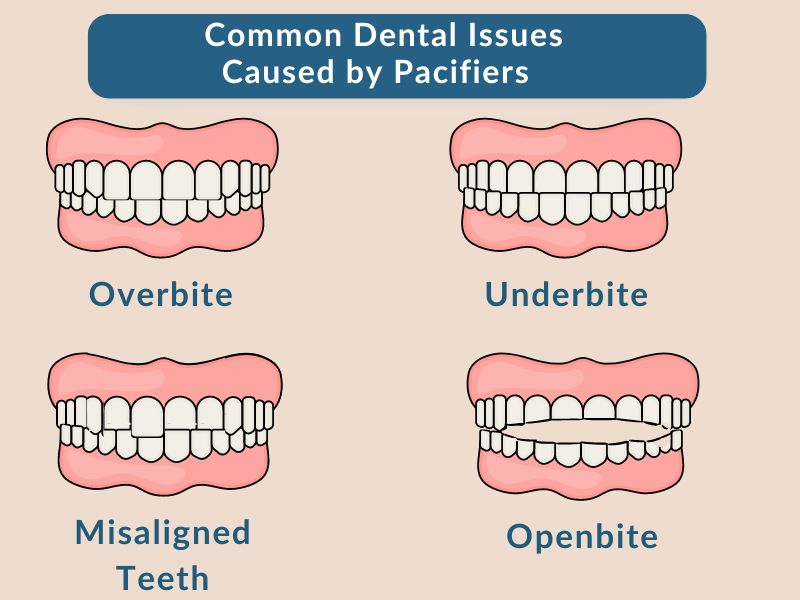
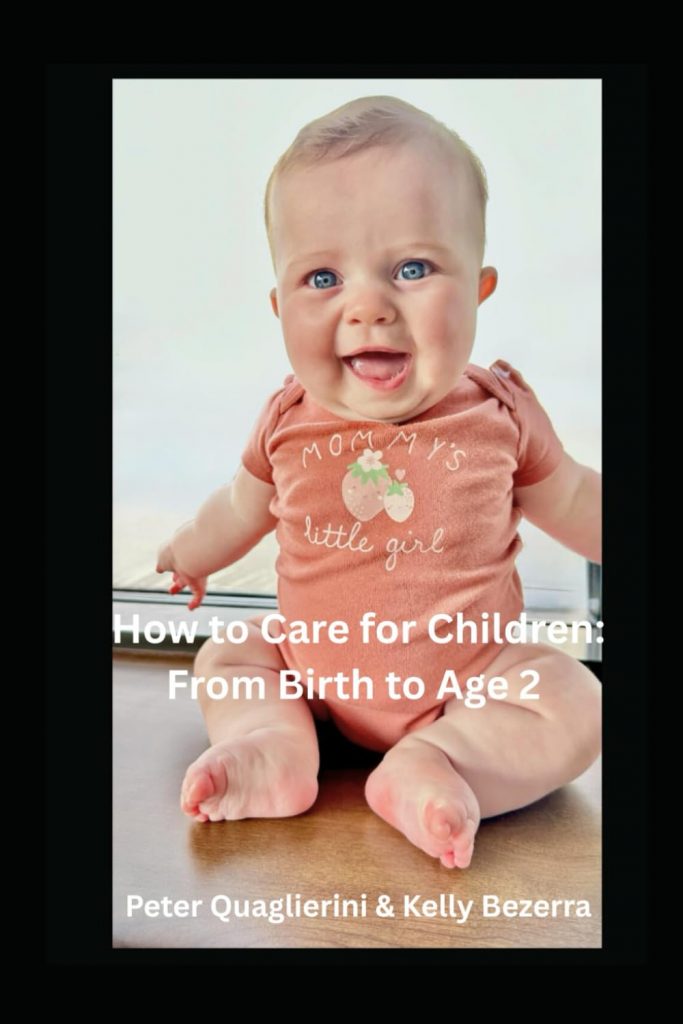
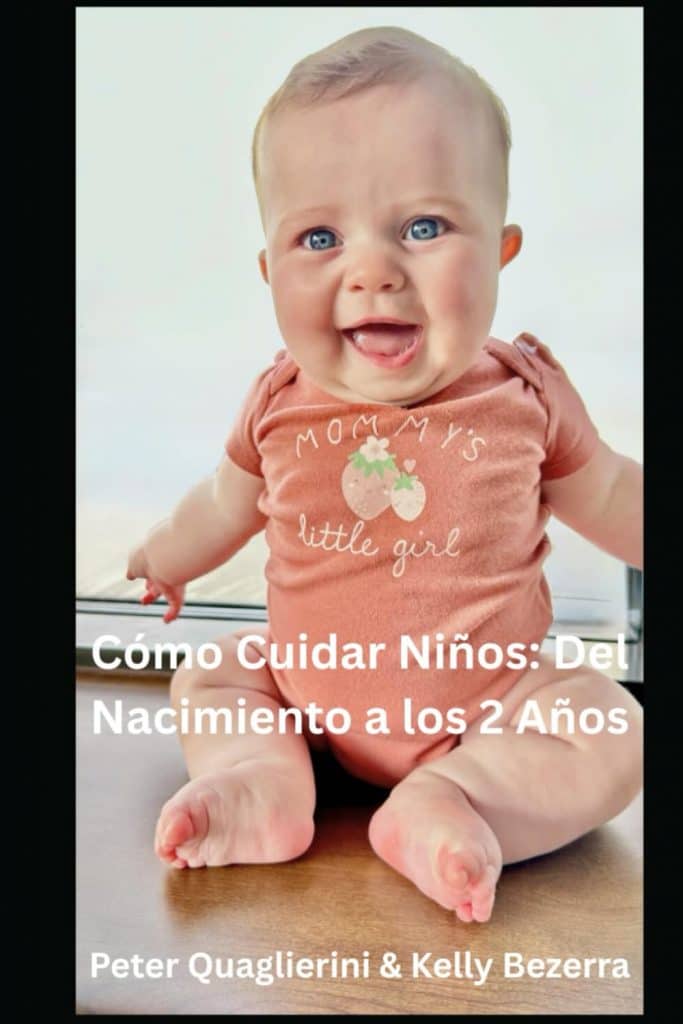
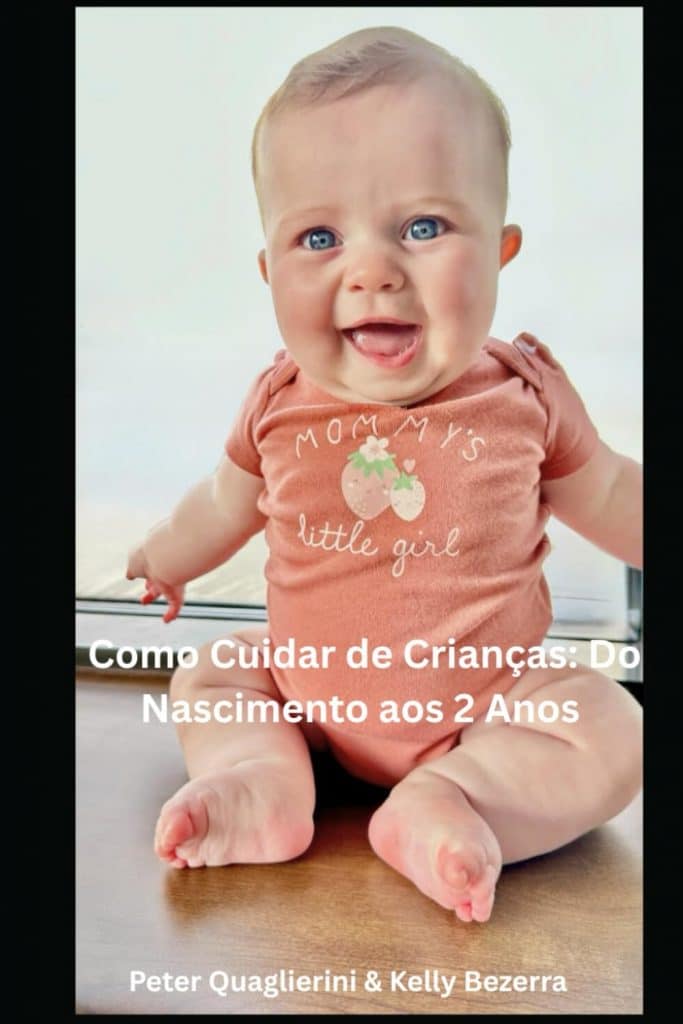
I did not realize the long-term risks of using a pacifier.
Great information for mothers to think about.
Thank you!
Wow!
this is a real eye opener.
Such interesting information in this blog for new parents
Thank you!